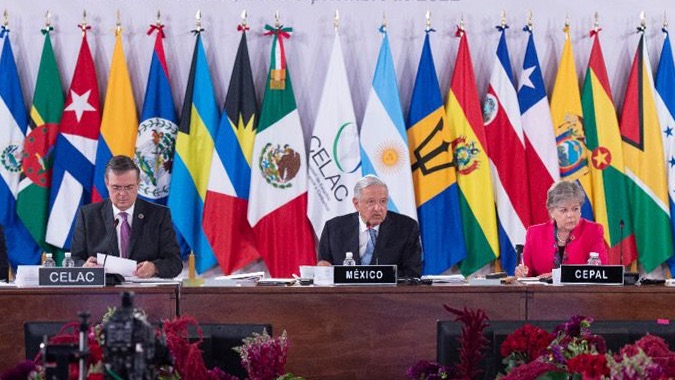Human Rights Promotion in North American Foreign Policy: Strategies, Challenges, and the Path Forward
The globalized world necessitates a robust and multifaceted approach to human rights promotion. This analysis examines the strategic frameworks and inherent limitations within North American foreign policy concerning human rights, focusing on contemporary regional challenges and opportunities for enhanced inter-American collaboration. We explore the synergistic potential of concerted action to foster regional unity and advance human rights across the Americas, applying relevant theoretical frameworks to understand and improve current practices.
Theoretical Underpinnings: Human Rights and International Relations Theory
Human rights, encompassing fundamental principles of democracy, justice, and equality, are not mere aspirations but cornerstones of international relations. Their prioritization significantly influences foreign policy decision-making and interstate relations. The adoption of a human rights-centric foreign policy reflects a nation's commitment to liberal internationalism and impacts its global standing. This can be analyzed through the lens of constructivism, which emphasizes the role of norms and ideas in shaping state behavior, and realism, which acknowledges the constraints imposed by national interests. The prioritization of human rights, therefore, becomes a strategic choice influenced by both normative and power-related considerations. Furthermore, the interdependence of states, as evidenced by globalization, makes cooperation on human rights issues increasingly crucial.
North American Human Rights Commitments and Regional Cooperation: A Neoliberal Institutionalist Perspective
The United States and Canada have publicly affirmed their commitment to global human rights. However, translating these commitments into effective action necessitates strategic approaches grounded in a deeper understanding of the complexities of regional cooperation. The Americas offer a unique environment for regional collaboration, leveraging shared democratic values to address interconnected challenges like migration flows (understood through migration systems theory), gender inequality (analyzed via feminist theories of international relations), and environmental degradation (applying environmental security frameworks). A unified approach, informed by neoliberal institutionalism and emphasizing the creation of effective regional institutions and norms, can facilitate significant progress. The Organization of American States (OAS), for example, plays a key role in setting regional human rights standards and fostering cooperation.
Strategies for Effective Human Rights Promotion: A Multifaceted Approach
Effective human rights promotion requires a multifaceted strategy incorporating several key elements:
- Strategic Diplomacy and Advocacy: Active diplomatic engagement is crucial. North American nations should leverage their influence to advocate for human rights norms internationally and encourage adherence to international human rights law. This involves skillful negotiation, targeted sanctions, and public diplomacy to shape international opinion.
- Economic Incentives and Conditionality: Integrating robust human rights clauses into trade agreements (consistent with the principles of human rights due diligence) provides powerful incentives for improved human rights practices. This aligns with the logic of liberal institutionalism, emphasizing the role of international institutions in promoting cooperation and encouraging compliance with agreed-upon norms.
- Capacity Building and Empowerment: Investing in civil society organizations (CSOs) and human rights education empowers local actors to become agents of change, holding governments accountable. This approach aligns with the principles of empowerment and participatory development, recognizing that sustainable human rights progress requires local ownership and agency.
Challenges and Limitations: Navigating the Complexities of State Sovereignty
Despite the stated commitment, several challenges hinder effective human rights promotion:
- Balancing Sovereignty and Intervention: The challenge of balancing human rights promotion with respect for state sovereignty requires a nuanced approach. This necessitates careful consideration of the potential for unintended consequences and the importance of respecting national contexts, while simultaneously ensuring that human rights violations are addressed.
- Addressing Policy Inconsistencies: Inconsistencies in the application of human rights standards by North American nations undermine credibility. A consistent and transparent application of human rights principles across all foreign policy dimensions is crucial to maintain trust and ensure legitimacy. This requires careful consideration of ethical dilemmas and potential hypocrisy.
- Enhancing Coordination and Collaboration: Effective human rights promotion requires strong coordination among North American nations and collaboration with regional and international organizations. This necessitates the creation of effective mechanisms for information sharing, joint strategies, and the avoidance of duplicative efforts.
Regional Unity and Shared Values: A Constructivist Perspective
Prioritizing human rights in foreign policy strengthens regional relationships based on shared democratic values. Collaborative efforts to address transnational challenges like drug trafficking, corruption, and poverty contribute to regional stability and prosperity. This approach aligns with constructivist theories, highlighting the importance of shared norms and values in shaping state behavior and promoting cooperation.
The Role of Civil Society and Targeted Interventions: The Magnitsky Act as a Case Study
Individual and collective action is crucial. Educating oneself about human rights abuses and participating in grassroots movements amplifies the voices of vulnerable populations. Organizations like the IACHR play a pivotal role in monitoring and promoting accountability. Initiatives like the US Magnitsky Act illustrate a targeted approach to addressing human rights abuses through sanctions, demonstrating the effectiveness of combining diplomatic pressure with targeted actions.
Enhancing Regional Cooperation and Individual Engagement: A Path Forward
Opportunities for enhanced collaboration abound. Academic exchanges, joint research initiatives, and collaborative programs fostering understanding and solidarity across the Americas are essential. Continuous learning, engagement with experts, and informed participation in relevant discussions are crucial for effective individual engagement.
Conclusion and Recommendations: A Call for Collective Action
Promoting human rights in the Americas is a collective responsibility requiring a holistic strategy combining diplomatic efforts, targeted economic incentives, capacity building, and robust regional collaboration. Further research should focus on comparative case studies of successful and unsuccessful human rights interventions, evaluating the effectiveness of different strategies and identifying best practices. Strengthening regional institutions like the OAS, fostering greater coherence in North American human rights policy, and promoting effective mechanisms for addressing policy inconsistencies are critical for success. The ultimate aim should be to create a more just and equitable region, ensuring that all individuals and groups are afforded their fundamental rights and freedoms.
Reader Pool: What innovative mechanisms, beyond those discussed, could significantly enhance regional cooperation and the efficacy of North American human rights promotion initiatives within the context of diverse national interests and capacities?




